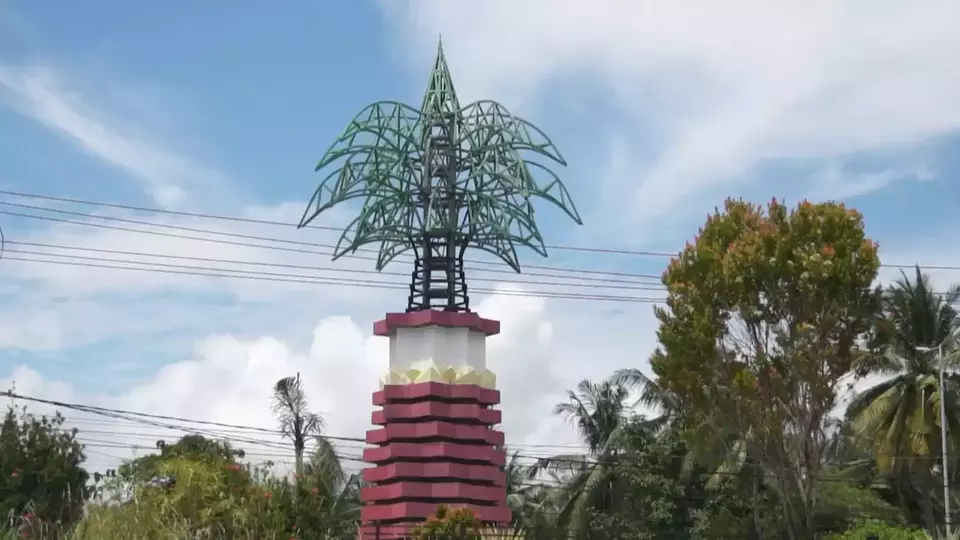News
Palm Oil Industry Powers Pasangkayu's Prosperity
WINDONESIA May 15, 2024 The palm tree monument in Pasangkayu Regency, West Sulawesi. (Pasangkayu Regency Government).
The palm tree monument in Pasangkayu Regency, West Sulawesi. (Pasangkayu Regency Government).
A palm tree monument in front of the Pasangkayu Regent’s office symbolizes the vital role palm oil plantations have played in boosting the welfare and economic development of Pasangkayu Regency, West Sulawesi.
"It used to be very difficult to find a telecommunication shop here, but now we can sit anywhere and pick up the phone. The [telecommunication] infrastructure and network have been built here," Pasangkayu Regent Yaumil Ambo Djiwa stated.
Yaumil was instrumental in its establishment as North Mamuju Regency by separation from Mamuju Regency in 2004. The name was later changed to Pasangkayu Regency in 2017 with the approval of President Joko Widodo, following requests from local community leaders.
Another influential figure for the regency's founding is Yaumil’s younger brother Agus Ambo Djiwa, who served as regent before him. During Agus’ tenure, the regency centered its economic activities around palm oil, and the iconic monument was constructed.
As economic prosperity has increased, so has the population of the young regency.
"The population growth has picked up pace since the separation of the regency began in 2003, from only around 90,000 people to more than 200,000 today," Pasangkayu Legislative Council member Saifuddin Baso said.
Per capita income in the regency has risen significantly from around Rp20 million to Rp58 million based on government data. Pasangkayu now boasts the highest gross domestic product in West Sulawesi.
Saifuddin, who was elected in 2004, participated in a council team tasked with increasing the number of districts in the regency from four to twelve. He attributes Pasangkayu's rapid economic growth to the palm oil industry, which has become the main livelihood for the local community.
Acting West Sulawesi Governor Zudan Arif Fakrulloh agrees with that assessment.
"The main driver behind its economic growth is the boom in the palm oil sector, which includes crude palm oil and its derivatives, propelling the overall agriculture sector," Zudan, who is also a law professor, said.
Pasangkayu's agriculture, forestry, and fisheries sectors contributed 44.7 percent to West Sulawesi's economic growth in 2023 according to West Sulawesi Provincial Government data.
However, Saifuddin noted that rapid population growth has led to conflicts between residents and palm oil companies. He cites ongoing disputes between subsidiaries of palm oil giant Astra Agro and farmers, who are mostly migrant residents, over palm plantations.
The 56-year-old Pasangkayu native emphasized that all licensed companies operating in the regency have met legal requirements and procedures stipulated by law, dismissing concerns that they are seizing land from residents.
Saifuddin suggested that disputes can be resolved through mediation or, if necessary, legal channels to reach fair solutions. He stressed the importance of a persuasive approach to resolving problems amicably and ensuring that any legal settlements are based on evidence, data, and facts in compliance with existing laws.
Saifuddin also noted that Astra Agro has been present in Pasangkayu since the late 1980s, even before the regency was established.

